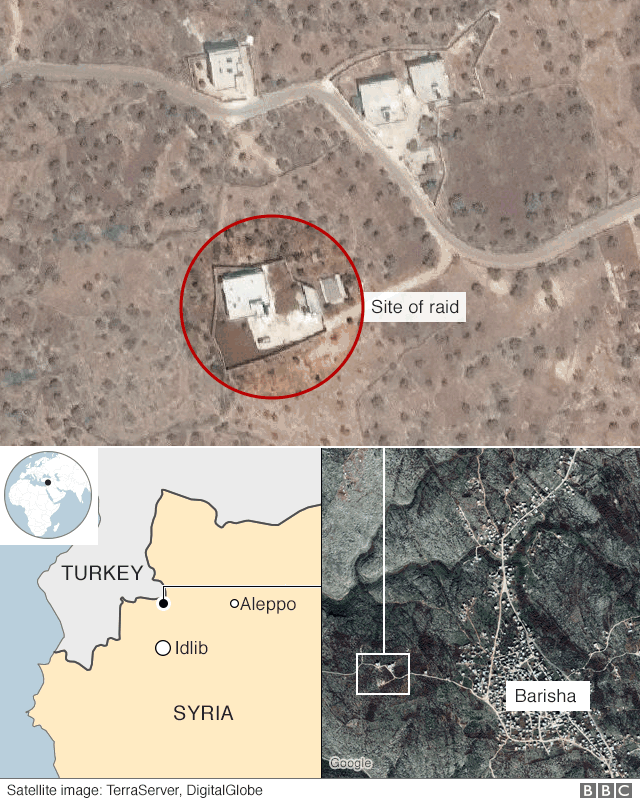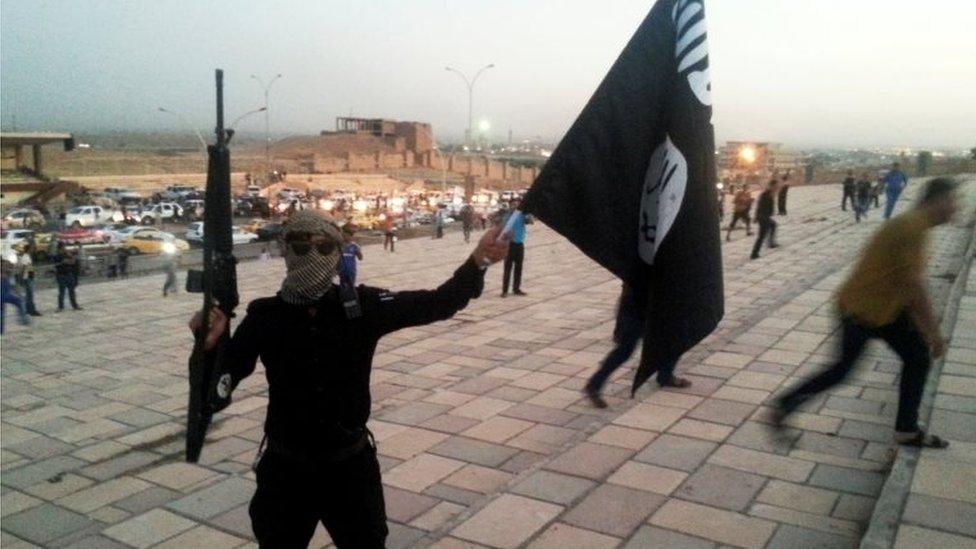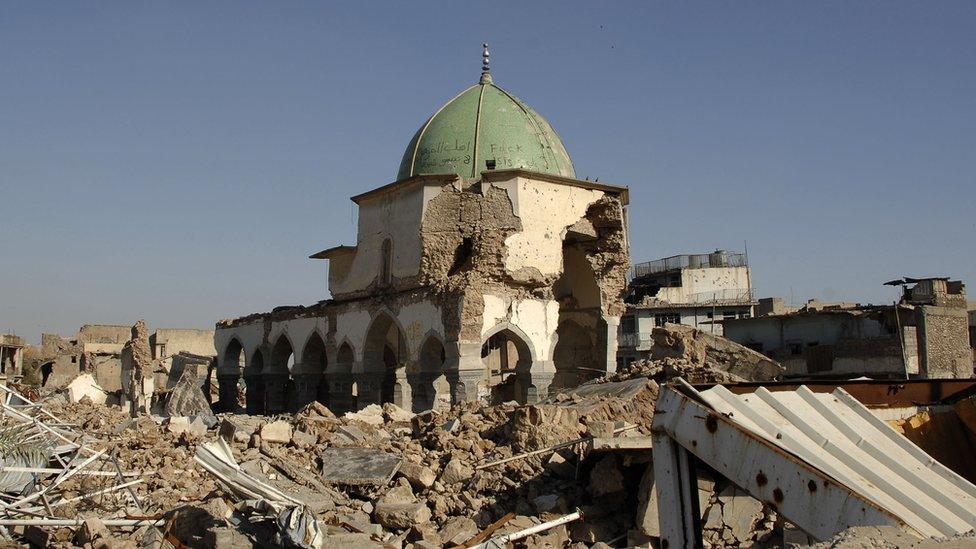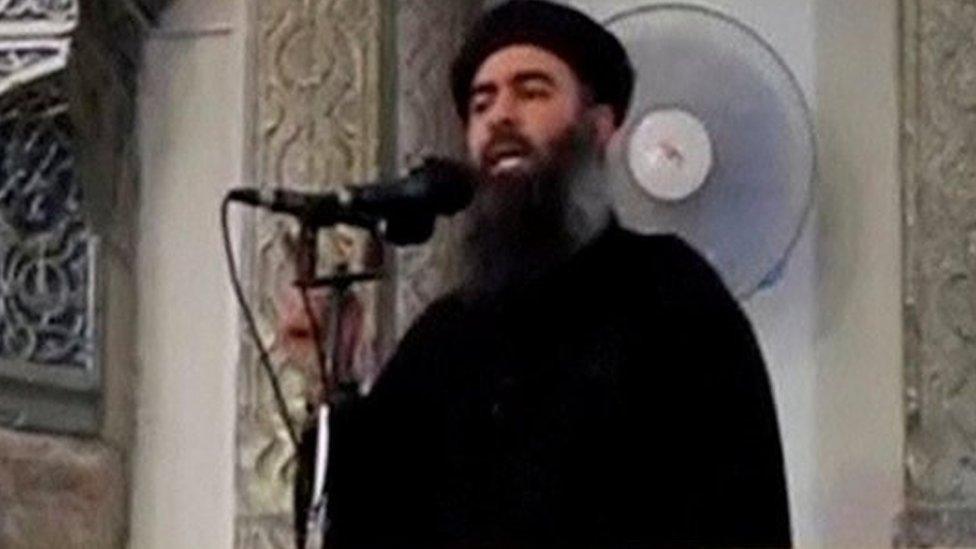Abu Bakr al-Baghdadi: IS leader's underwear 'stolen' for DNA test
- Published
Aerials of destroyed Baghdadi site
The Kurdish-led Syrian Democratic Forces (SDF) have said their spy stole Abu Bakr al-Baghdadi's underwear which was then DNA tested and used to prove his identity before he was killed.
A senior SDF commander claimed their source also played a vital role in tracking down the Islamic State (IS) leader's location before an operation by US special forces in Syria.
Baghdadi killed himself in the raid.
US President Donald Trump has downplayed the role of Kurdish forces.
When announcing the raid on 27 October, Mr Trump said the Kurds provided "helpful" information but added that they had not carried out "a military role at all".
But Polat Can insisted the SDF played an important part in the raid in a Twitter thread posted on Monday.
"All intelligence and access to al-Baghdadi as well as the identification of his place were the result of our own work. Our intelligence source was involved in sending coordinates, directing the airdrop, participating in and making the operation a success until the last minute," he said.
Allow X content?
This article contains content provided by X. We ask for your permission before anything is loaded, as they may be using cookies and other technologies. You may want to read X’s cookie policy, external and privacy policy, external before accepting. To view this content choose ‘accept and continue’.
Mr Can added that the SDF had been working with the CIA to track Baghdadi since 15 May, and had discovered that he was hiding in Idlib province, where the raid took place.
The source, said Mr Can, had found out that the IS leader was about to move to a new location in Jarablus.
The SDF have been key allies of the US in the battle against the Islamic State (IS) group, but earlier this month Mr Trump pulled American troops out of northern Syria.
Analysts say the US withdrawal in effect gave Turkey the green light to begin a cross-border assault on the region.


What do we know about the raid?
Several US allies or powers in the region were given advance notification of the raid, including Turkey, Iraq, Kurdish forces in north-eastern Syria, and Russia, which controls airspace over Idlib.
The troops arrived to a barrage of shots from the ground, reports said.
On landing, the US force called on Baghdadi, who had fled into a tunnel, to come out and surrender.
Abu Bakr al-Baghdadi killed himself during a raid by US commandos
The force blew holes in the walls to avoid any booby traps in doors. The retreating Baghdadi then detonated his suicide vest, killing himself and three children in the tunnel.
Mr Trump said test results carried out on the remains "gave certain, immediate and totally positive identification" that it was Baghdadi.
The tests were carried out on site by technicians who accompanied the special forces personnel and had samples of Baghdadi's DNA with them, reports said.
They combined facial recognition technology and a smaller DNA reader that troops can use aboard their helicopters to obtain the results, according to the Daily Beast., external
The technicians also brought "substantial pieces" of the body back with them on the helicopters.
On Monday, the US Joint Chiefs of Staff, Gen Mike Milley, said that American officials had disposed of Baghdadi's remains.
He said the burial was now "complete and was handled appropriately" without providing any further details.
Body language expert analyses Trump's Situation Room photo
An anonymous official told the Reuters news agency that Baghdadi had been given religious rites according to the Islamic custom and buried at sea.
A similar process was carried out following the killing of al-Qaeda founder Osama bin Laden in Pakistan in 2011.
- Published29 October 2019

- Published27 March 2019

- Published23 March 2019

- Published8 March 2016
